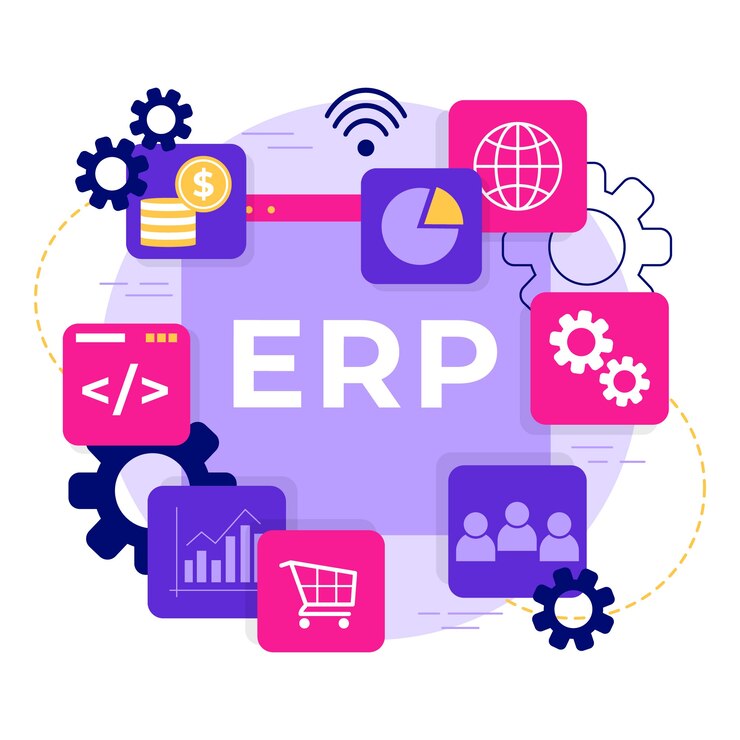The Kingdom of Saudi Arabia has embarked on an ambitious digital transformation journey as part of Vision 2030, fundamentally reshaping how businesses operate and compete in the modern economy. This comprehensive initiative has created unprecedented opportunities for organizations to modernize their operations through advanced enterprise resource planning solutions that streamline processes and enhance productivity.
Saudi Arabian businesses across all sectors are recognizing the critical importance of integrated business management systems that can handle complex operations while ensuring compliance with local regulations and international standards. The rapid pace of economic diversification has intensified the need for scalable, flexible software solutions that can adapt to changing business requirements.
Modern enterprise resource planning platforms have become essential tools for organizations seeking to optimize their operations, reduce costs, and improve decision-making capabilities. The right ERP solution can transform how businesses manage their resources, interact with customers, and respond to market opportunities in Saudi Arabia’s dynamic business environment.
Understanding the available ERP options and their specific advantages in the Saudi Arabian context is crucial for business leaders making technology investment decisions. The selection of an appropriate system can significantly impact operational efficiency, regulatory compliance, and long-term business success in this rapidly evolving market.
Odoo ERP System
The Odoo ERP system represents a comprehensive business management platform that integrates multiple business functions into a unified, efficient system. This open-source solution offers modular architecture that allows organizations to implement only the components they need while maintaining the flexibility to expand functionality as their business grows and evolves.
Core modules within the Odoo ERP system include accounting and finance management, sales and customer relationship management, inventory and warehouse management, human resources, project management, and manufacturing operations. Each module is designed to work seamlessly with others, eliminating data silos and ensuring consistent information flow throughout the organization.
The user interface of the Odoo ERP system prioritizes simplicity and intuitive navigation, reducing training requirements and improving user adoption rates. Modern web-based architecture ensures accessibility from various devices and locations, supporting remote work arrangements and mobile business operations that are increasingly common in today’s business environment.
Customization capabilities in the Odoo ERP system allow organizations to tailor the platform to their specific industry requirements and business processes. The system’s flexibility extends to reporting and analytics, enabling businesses to create custom dashboards and reports that provide insights relevant to their unique operational needs and strategic objectives.
Integration features of the Odoo ERP system support connectivity with third-party applications, e-commerce platforms, and specialized industry software. This integration capability ensures that businesses can maintain their existing technology investments while benefiting from improved data coordination and process automation.
Odoo ERP System in Riyadh
The implementation of Odoo ERP system in Riyadh has gained significant momentum as the capital city serves as the commercial and administrative heart of Saudi Arabia’s transformation initiatives. Riyadh-based businesses are leveraging this technology to enhance their competitiveness and align with the kingdom’s digitization goals.
Financial sector adoption of Odoo ERP system in Riyadh includes banks, investment firms, and insurance companies that require robust financial management capabilities and regulatory compliance features. These implementations demonstrate the system’s ability to handle complex financial operations while maintaining the security and audit trails required in the financial services industry.
Government agencies and public sector organizations in Riyadh have implemented Odoo ERP system in Riyadh to improve service delivery, enhance transparency, and optimize resource allocation. These deployments often serve as benchmarks for other public sector digitization initiatives throughout the kingdom.
Manufacturing companies in Riyadh’s industrial areas utilize Odoo ERP system in Riyadh to manage complex production processes, supply chain operations, and quality control systems. The system’s manufacturing modules support various production methodologies and help companies optimize their operations while maintaining compliance with Saudi industrial standards.
Service sector businesses in Riyadh, including consulting firms, healthcare providers, and educational institutions, have adopted Odoo ERP system in Riyadh to streamline their operations and improve client service delivery. These implementations highlight the system’s versatility across different business models and service delivery approaches.
Odoo ERP System in Saudi Arabia
The broader adoption of Odoo ERP system in Saudi Arabia reflects the kingdom’s commitment to digital transformation and economic diversification. Organizations across various emirates and regions are implementing this technology to modernize their operations and participate more effectively in the digital economy.
Oil and gas sector implementations of Odoo ERP system in Saudi Arabia address the complex operational requirements of this critical industry, including project management, asset maintenance, regulatory compliance, and financial reporting. These deployments demonstrate the system’s capability to handle large-scale, complex operations in demanding industrial environments.
Retail and e-commerce businesses throughout Saudi Arabia have embraced Odoo ERP system in Saudi Arabia to manage multi-channel operations, inventory across multiple locations, and customer relationships in an increasingly competitive market. The system’s e-commerce integration capabilities support omnichannel strategies that are essential for modern retail success.
Construction and real estate companies across Saudi Arabia utilize Odoo ERP system in Saudi Arabia to manage complex projects, track resources, handle contractor relationships, and maintain compliance with local building codes and regulations. These implementations support the kingdom’s massive infrastructure development initiatives.
Healthcare organizations implementing Odoo ERP system in Saudi Arabia benefit from modules that address patient management, medical inventory, staff scheduling, and regulatory compliance specific to the healthcare sector. These deployments support the kingdom’s efforts to modernize and expand healthcare services.
Small and medium enterprises throughout Saudi Arabia have found Odoo ERP system in Saudi Arabia particularly attractive due to its scalable pricing model and modular approach, which allows growing businesses to implement functionality as needed without major upfront investments in unused capabilities.
Implementation Considerations and Best Practices
Successful implementation of Odoo ERP systems in Saudi Arabia requires careful planning, stakeholder engagement, and understanding of local business practices and regulatory requirements. Organizations must consider factors such as data migration, user training, customization needs, and ongoing support requirements when planning their ERP implementation.
Change management strategies play a crucial role in ERP implementation success, particularly in organizations with established processes and systems. Effective communication, comprehensive training programs, and phased rollout approaches help ensure user adoption and minimize disruption to ongoing business operations.
Local support and implementation partners in Saudi Arabia provide valuable expertise in navigating the specific challenges and opportunities of ERP deployment in the Saudi business environment. These partners understand local regulations, business practices, and cultural considerations that can impact implementation success.
Data security and privacy considerations are particularly important in Saudi Arabia, where businesses must comply with local data protection regulations while maintaining the security of sensitive business information. Odoo ERP systems include comprehensive security features that support these requirements when properly configured and maintained.
Integration with existing systems and processes requires careful planning to ensure data consistency and operational continuity during the transition period. Organizations must evaluate their current technology landscape and develop migration strategies that minimize risk while maximizing the benefits of their new ERP system.
Conclusion
The adoption of Odoo ERP systems across Saudi Arabia represents a significant step forward in the kingdom’s digital transformation journey. These implementations provide organizations with the tools needed to optimize their operations, improve decision-making, and compete effectively in both domestic and international markets.
The flexibility and scalability of Odoo ERP solutions make them particularly well-suited to the diverse needs of Saudi Arabian businesses, from small enterprises to large corporations across various industries. The system’s modular approach allows organizations to start with essential functionality and expand their capabilities as their needs evolve.
As Saudi Arabia continues to diversify its economy and embrace digital technologies, the role of comprehensive ERP solutions becomes increasingly important. Organizations that invest in robust, flexible ERP systems like Odoo position themselves to take advantage of emerging opportunities while maintaining operational efficiency and regulatory compliance.
Frequently Asked Questions
1. What makes Odoo ERP system particularly suitable for businesses operating in Saudi Arabia? Odoo ERP system offers several advantages for Saudi Arabian businesses, including multi-language support (Arabic and English), multi-currency capabilities for handling SAR and international transactions, and flexible reporting that can accommodate local accounting standards and tax requirements. The system’s modular architecture allows businesses to implement only needed functionality while maintaining scalability for growth. Additionally, Odoo’s open-source nature provides cost advantages and customization flexibility that particularly benefits Saudi businesses looking to optimize their technology investments while complying with local regulations.
2. How does the implementation cost of Odoo ERP system in Riyadh compare to other ERP solutions? Odoo ERP system in Riyadh typically offers significant cost advantages compared to traditional ERP solutions, with lower licensing fees due to its open-source foundation and modular pricing structure. Implementation costs vary based on customization requirements, number of users, and selected modules, but generally range from SAR 50,000 to SAR 500,000 for small to medium enterprises. The total cost of ownership is often 40-60% lower than proprietary ERP systems when considering licensing, implementation, and ongoing maintenance costs. Local implementation partners in Riyadh also provide competitive pricing and payment plans tailored to the Saudi market.
3. What kind of local support is available for Odoo ERP system implementations in Saudi Arabia? Saudi Arabia has a growing network of certified Odoo partners and implementation specialists who provide comprehensive support services including system analysis, customization, training, and ongoing maintenance. These local partners understand Saudi business practices, regulatory requirements, and Arabic language needs. Support services typically include 24/7 technical assistance, regular system updates, user training programs, and on-site support when needed. Many partners also offer industry-specific expertise for sectors like manufacturing, retail, and services that are prominent in the Saudi economy.
4. Can Odoo ERP system handle the specific regulatory and compliance requirements in Saudi Arabia? Yes, Odoo ERP system can be configured to meet Saudi Arabian regulatory requirements including VAT compliance, Zakat calculations, labor law requirements, and industry-specific regulations. The system supports Arabic language reporting, local accounting standards, and can generate reports required by government agencies like GAZT (General Authority of Zakat and Tax) and Ministry of Commerce. Customization capabilities allow for adaptation to specific regulatory changes, and local implementation partners ensure configurations meet current compliance requirements while providing updates for regulatory changes.
5. How long does a typical Odoo ERP system implementation take for a mid-sized company in Saudi Arabia? A typical Odoo ERP system implementation for a mid-sized company in Saudi Arabia usually takes 3-6 months, depending on the complexity of business processes, number of modules being implemented, and level of customization required. The timeline includes phases for system analysis and planning (2-4 weeks), configuration and customization (6-12 weeks), data migration and testing (3-4 weeks), user training (2-3 weeks), and go-live support (1-2 weeks). Phased implementations can extend this timeline but reduce business disruption by implementing modules gradually. Companies with more complex requirements or extensive customization needs may require 6-12 months for full implementation.







